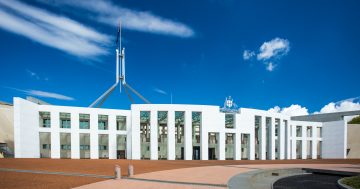
Legislation banning gay conversion therapy confirms the social progressiveness that informs our government. Photo: File.
Today or next Thursday (27 August), the ACT Legislative Assembly will finalise legislation to formally ban gay conversion therapy in our Territory. The legislation has sparked a round of public debate about what classifies as conversion therapy, and how the rights of LGBTQI+ people conflict with or intersect with religious freedom.
Interestingly, in my circles, it has also triggered a question around what the purpose is of the legislation in a small jurisdiction like the ACT where most people presume the hardcore gay conversion therapy programs we’ve seen in larger cities and overseas simply don’t exist.
Putting aside the specifics of this legislation itself (and whether or not there is, in fact, a secret gay conversion camp hiding out in the bushland in Canberra), it raises an interesting philosophical question: what is the point of enshrining in legislation a principle that won’t have any practical impact as the issue at its core may not be present in Canberra?
A similar example is when the ACT banned battery farming in the egg industry – a noble and important position to hold (in my opinion) but a relatively easy Bill to pass given there was only one active battery cage farm in Canberra, a scenario wildly different to our NSW and Victorian counterparts where the industry is much larger.
To some people I’ve spoken with, there is a level of frustration when our legislature spends time on these seemingly irrelevant topics of concern, when there are ‘real’ issues facing Canberrans today that need immediate and practical attention – like the continued failure of public transport to meet the needs of Canberrans at the far reaches of our city, or the concerns over development and access to Lake Burley Griffin, to name the two examples used by my friends in this debate.
But I would argue that legislation should actively seek to improve the future of our Territory, before the issues in question negatively impact citizens, rather than only putting out fires once they’ve burned through the city.
In the case of gay conversion therapy, clearly outlining the rights of the queer community, and actively protecting queer young people from being abused at the hands of homophobic programs that seek to force them back into the closet is an important and timely piece of legislation that ensures that there are legal grounds for shutting down this abuse as it rears its ugly head.
And as an aside, if religious schools are worried that this legislation will prevent them from counselling young people against homosexuality, that’s kind of the entire point – it is harmful to enforce a negative suppression of anyone’s sexuality, which we know from the rates of suicide in queer teens.
Similarly with battery cages in the egg industry, having a clear political statement on animal welfare is one way that the ACT can then push for better national standards for hen welfare, which it has done consistently since this legislation came into force.
As a citizen of Canberra, having these seemingly ‘symbolic’ pieces of legislation brought to the table fills me with a sense of pride in the Territory I belong to and confirms the integrity with which values of social progressiveness inform our government.
Of course, legislation that intersects with morals, religion and values will always be controversial, but progress is only made by drawing a clear line in the sand, even if the beach in question isn’t anywhere near our borders.















